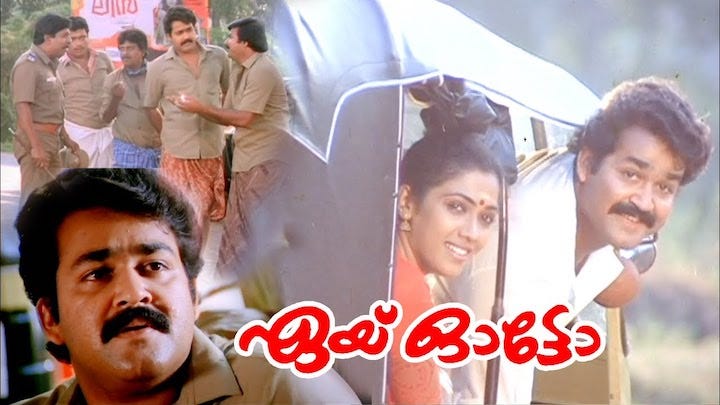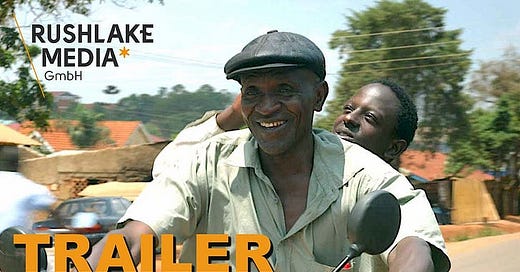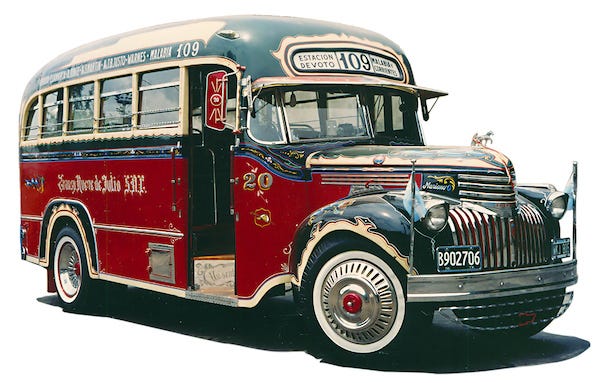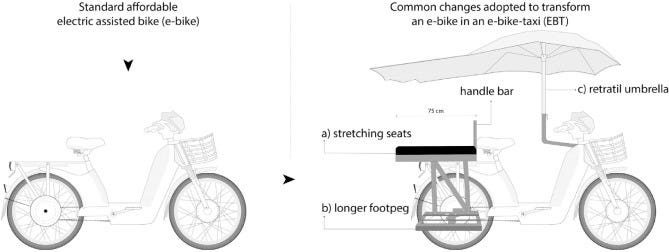Hey friend,
Hope you’re doing well. Here’s your dose of Makeshift Mobility, your bi-weekly dose of innovations and what-nots in informal transportation.
I come out the same weekend as Pop Transport, your other newsletter on informal transportation. Their ninth issue covers quite a lot of ground if you’re hungry for research in this space. Head over there and subscribe.
It’s Memorial Day weekend in the U.S. which is why this letter is a day late. I’m feeling a little lazy. (Ok, a lot lazy.) I thought we’d take it light this week and just show you a few interesting things I found by googling movie+name of a makeshift mobility mode.
If you're feeling curious and have time on your hands, read on.
Warning: this issue may or may not contain links to pirated movies about informal transportation.
(Pro-tip: follow this link to learn one version of the history of the Memorial Day that white supremacy tried to erase.)
But first some business…
2021 National Shared Mobility Summit
You should sign up for the 2021 National Shared Mobility Summit.
We’ve got amazing conversations lined up, hosted by amazing women like Tiffany Chu, Juliet Eldred, Ashley Putnam, Danielle J. Harris, Naomi Doerner, Dr. Beverly Scott, and Dr. Regan Patterson.
We’re calling it The Big Shift, and asking: “How might we shift the SYSTEM? The WHOLE SYSTEM!” —Because climate crisis. Because race and social justice.
The Summit is distributed, across the four Tuesdays of the month of July. (Helps you avoid zoom fatigue!) With echo and networking events on Thursdays.
You can register here.
If you email me or leave a comment, I know a guy who knows a guy who might get you a sizable discount. (Wink. Wink.)
On to the random googling. On a whim, I searched for:
“Movies that feature auto-rickshaw drivers as main characters”

I landed on a Times of India article from 2018 that had that exact title. It lists six Malayalam1 films from Kerala, India, a mix of rom-coms and drama all centered around the lives of auto rickshaw drivers.
Aye Auto, 1990
Chotta Mumbai, 2007
Kochi Ravaju, 2005
Kadha thudarunnu, 2010
Friday, 2012
I haven’t seen any of the six, and full caveat that I’m not sure if any of those links to the full movies are legit, but go ahead and follow them if you want to try a dose of makeshift mobility meets Mollywood.
TIL, Mollywood refers to films made in Kerala. Bollywood refers to films made in Mumbai.
If you know better movies from India that are not on the Times’ list, do share.
Then I googled:
“Movies that feature tuktuk drivers as main characters”
It led me to Egypt and to Director Romany Saad's 2015 documentary entitled, what else but, “Tuk-tuk.”
It’s a 75-minute documentary that:
…is about the daily lives of three child rickshaw drivers across the crazy streets of Cairo. The drivers, all underage, have lost their childhood innocence: they speak like grownups, smoke cigarettes and rush across the streets between taxis, buses and police officers without driving licenses. All they live for is earning a few pounds to support their siblings and their parents who are too ill to work or too lazy to bother…
The documentary was inspired by [Romany Saad's] neighborhood: Shubra, whose streets are populated by three-wheeled motorized rickshaws. “Every day, I take a tuk-tuk accompanying my son to his school along the narrow backstreets of Shubra,” says Saad, who noticed that their tuk-tuk driver was always a young, cigarette-smoking child.
The blurb on the trailer says:
Every day, thousands of three-wheeled motorized rickshaws (called “tuk-tuks”) zip through Cairo, many of them driven by industrious teenage boys like Abdallah, Sharon and Bika. These three friends are too young to obtain a driver’s license, but with no other way to feed their families they are forced to navigate the wild urban landscape of Cairo as tuk-tuk drivers. Besieged by police, thieves and other taxis on the dangerous but comedy-filled streets, these three boys struggle to hold onto a small piece of their childhood before it is gone forever.
Saad says more about the background of the film that was shot between the 25 January Revolution (2011) that brought down Hosni Mubarak and the 30 June Protests (2013) that brought down Mohamed Morsi.
Googling on, I got to:
Boda Boda Thieves
Donald Mugisha’s 2015 film (“Abaabi ba boda boda”) about the son of a bodaboda driver and the mean streets of Kampala was on the indie film festival circuit. It graced a host of international film festivals including the New African Film Festival, and the Berlin, Seattle, Durban, and Vancouver film fests.
Hassan Insingoma plays Abel, aka Spike, a 15 year-old who’s hanging out with the wrong kind of people while telling his parents he’s looking for work in town. His father makes money by taking passengers around on a motorbike (the “boda boda“) owned by a local big shot, but buses are killing his business, and he owes the man a lot of money. When an injury leaves him unable to drive, Abel takes responsibility for the boda boda.
Then, I googled:
“Movies that feature camioneta or colectivo drivers as main characters”
Google replied: “It looks like there aren't many great matches for your search.”
Instead, the first film that came up was this gem:
The blurb in the poster of Mark Kendall’s La Camioneta: The Journey of One American School Bus got me excited. It reads:
“An upbeat story of resilience, regeneration and artistic imagination.”
Isn’t that what informal transportation is all about?
La Camioneta traces the journey of a decommissioned public school bus in the US as it travels to Guatamela to be converted into a camioneta.
Sheri Linden reviewed the film when it showed at the 2012 LA Film Festival:
Having discovered that the public transportation camionetas widely used in Guatemala are repurposed American school buses, Kendall embarked on a filmmaking project that would trace one such vehicle’s transformation. The action begins with a Pennsylvania auction of decommissioned buses, where most of the bidders are men who have traveled from Central America. For the man who buys the titular bus, on a payment plan, after it has arrived in Guatemala, the transaction fulfills a lifelong dream.
Another one of the individuals that Kendall’s astute camera highlights is a young man who makes the trip between Guatemala and the U.S. twice a month, driving 16-hour days, to purchase and deliver the buses. He’s at peace with the nature of his work, but can’t deny the dread he feels each time he enters Mexico, an understandable reaction given the country’s recent spate of violence.
The homefront is not much easier, as La Camioneta makes clear without reaching for heavy-handed explanations. Camioneta drivers must contend with gangs that extort them for cash. Those who don’t comply are often the victims of shootings or grenades; in 2010 alone, nearly 200 drivers and fare collectors were killed.
Peter Sobczynski says:
For some viewers, "La Camioneta" may sound like a tough sell. Even those who do attend documentaries and independent films on a regular basis may shy away from it on the basis that it lacks the kind of big dramatic hook usually required to lure viewers in. That would be a shame, because this is a smart and engaging work that takes a subject that sounds like a drag and, much like the workers that it covers, transforms it into something useful and valuable.
La Camioneta is definitely on my watch list.
Let’s repeat that last sentence because it has so many layers for makeshift mobility.
“…takes a subject that sounds like a drag and, much like the workers that it covers, transforms it into something useful and valuable.”
Informal transportation IS useful and valuable. We just need the eyes to see it.
I know, I know. I’m preaching to the choir.
One more thing, I had a great conversation with Charles Landry and Paulo Tavares for the Mobi Portugal Summit. I think it’s a good primer for informal transportation.
You can watch the 40-minute interview here.
That’s it for this week. Next time I’ll tell you all about: fileteado, the art form that decorated the colectivos of Buenos Aires; and, about homebrew conversions of e-bikes into e-bike taxis in Shanghai. (Teaser images below.)
Leave me a comment, especially if you watched or plan to watch any of the movies above.
Share if you care.
I’m Benjie de la Peña and I’m the CEO of the Shared-Use Mobility Center. I co-founded Agile City Partners, and I am the Chair of the Global Partnership for Informal Transportation.
Did you know my undergrad degree is in (mass) communication? I hung around with quite a few auteurs before they got famous. Yeah, they won’t remember me. I should call on them, though. I do hope to recruit them to the fight to tell the “upbeat story of resilience, regeneration and artistic imagination” of makeshift mobility.
I’m convinced that informal transportation can be the single greatest lever to decarbonize the urban transport sector, but only if we stop ignoring it and instead learn to celebrate it.
Malayalam is the language spoken in Kerala and southeast India.







Hi Benjie.
Love your articles so much. I hope you know a guy who knows a guy who give massive discounts on the National Shared Mobility Summit (wink..wink..). I am based in the Philippines and started a micro mobility start-up called Tipaklong in June 2020 at the height of the now longest lock down in the world. We don't have a website site yet but you check us on FB and on YouTube (interview with Anton Diaz of Awesome Planet).
Hope we can touch base if what we're doing here in Manila is of interest to you.
Rgds,
Arnold Bufi
Hi Benjie!
A current Vietnamese film in US theaters this weekend that fits your theme: Bố Già
https://www.imdb.com/title/tt13925862/
"The film follows the story of Sang, an old motorbike taxi driver from a low-class neighborhood in downtown Saigon, as he struggles to make ends meet for his family."
Evidently, it was a big hit here, but I missed it and now we are back in strict social distancing orders...so thanks for the great list of movies!
https://deadline.com/2021/05/vietnamese-family-drama-bo-gia-shines-at-specialty-box-office-rakes-in-350k-on-memorial-day-weekend-1234766716/
Fred